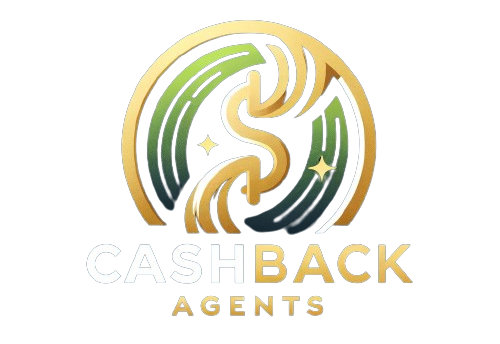When we talk about home buying or selling, we often focus on prices, locations, and property features, but there’s another area that can impact our finances significantly: the realty service itself. Cash back realtors are becoming increasingly popular in Canada, offering a unique proposition to those navigating the real estate market. These realtors provide a portion of the commission they earn on a real estate transaction back to the buyer or seller, essentially offering a financial incentive to choose their services.

The concept is straightforward: when a property is bought or sold, the realtor involved usually receives a commission based on the transaction’s value. With a cash back realtor, a percentage of this commission is returned to the client after the sale is completed. This can mean substantial savings for buyers and sellers, making it a tempting option for those looking to stretch their dollar further in a real estate deal. It’s critical, however, to understand how these programs work and to ensure that the deal we’re getting is as good on paper as it seems at face value.
Key Takeaways
- Cash back realtors offer a portion of their commission back to the client.
- This realty service can provide significant savings in real estate transactions.
- It’s important to comprehend the details of the cash back offer and ensure it aligns with our financial goals.
Understanding Cash Back Realtors
In our focus to grasp how cash back realtors provide added value in the real estate market, it’s essential to comprehend who they are and the mechanics behind their benefits.
Defining Cash Back Realtors
Cash back realtors are real estate agents who offer a portion of their commission back to their clients. This commission rebate typically comes in the form of a cash back reward after closing a property deal. Cash back realtors provide this service as an incentive and a way to stand out in a competitive market.
- Key Attributes:
- Real estate agent participating in a cash back program
- Provides a commission rebate to clients
- Legal and regulated in most Canadian provinces
How Cash Back Works in Real Estate
The process for how cash back functions in real estate is transparent.
- The Transaction:
- A buyer uses a cash back realtor’s services to purchase a property.
- The Commission:
- The realtor receives a commission from the seller.
- The Rebate:
- A part of this commission is then given back to the buyer as a cash rebate after the deal closes.
- Illustrative Example: Transaction Steps Description Engagement Buyer agrees to use a realtor’s services; the realtor outlines the cash back offer. Property Purchase The buyer purchases a property; the realtor facilitates the transaction. Commission Payout The realtor receives a commission from the seller’s agent. Cash Back The realtor provides a cash rebate to the buyer, usually a percentage of the received commission.
The value proposition of using a cash back realtor is clear—we can enjoy a portion of the commission as a rebate, which can be used to offset other purchase-related costs or saved for future expenses. This incentive is a way to attract clients looking for tangible benefits when entering the market.
The Financial Implications

When considering cash back realtors, we must explore how their commission structure affects the home purchase process, the potential savings for home buyers, and the tax implications involved.
Commission Structure and Home Purchase
The traditional commission model in real estate involves the seller paying a commission, typically a percentage of the purchase price, which is then split between the buyer’s and seller’s agents. However, cash back realtors offer a twist: they return a portion of their commission to the buyer. For a $500,000 home, a standard 2.5% commission to the buyer’s agent would be $12,500. A cash back realtor might offer to return 25% of that commission, which means the buyer would receive $3,125. This can directly impact the net cost of the home purchase for the buyer.
Savings for Home Buyers
The savings provided by cash back realtors can be substantial, sometimes reaching into the thousands of dollars, depending on the purchase price and the percentage of the commission returned. For our buyer clients, this translates into savings that could be used to cover closing costs, home improvements, or even to reduce the principal of their mortgage. Here’s a simple breakdown:
- Purchase Price: $500,000
- Commission Returned to Home Buyer: 25%
- Total Savings: $3,125
This model provides a financial advantage and drives value for home buyers, as they receive a portion of the transaction back in their pockets.
Tax Considerations
The funds received from a cash back realtor are typically not taxable as income for the buyer because they are considered a rebate on the purchase price. However, it’s essential for buyers to understand that these funds might affect their adjusted cost base when calculating capital gains tax if they sell the property later on. It’s recommended to consult with a tax professional for exact details, but here’s a general idea:
- Savings from Cash Back: Not taxable at time of purchase
- Adjustment on Capital Gains: Savings reduce cost base, potentially affecting future capital gains tax
Legality and Market Regulations

In exploring the regulatory framework surrounding cash back realtors, we must consider legal specifics and regional variations, including explicit bans where applicable, to understand the landscape in which they operate.
Legal Aspects of Cash Back Realtors
Cash back realtors offer buyer rebates as part of their commission, a practice that illuminates the evolving nature of real estate transactions. Legally, this model is permissible as it adheres to the ethical codes set out by the Canadian Real Estate Association (CREA), provided they ensure full disclosure and transparency. As striving members of CREA, we embrace the competitive spirit this business model offers, making sure that the rules pertaining to advertising and fair practice are strictly followed. Furthermore, Realtor® is a controlled term within Canada, and our use deploys it according to the stringent trademark regulations.
Key Legal Points:
- Full disclosure to clients
- Compliance with CREA’s codes
- Careful use of the term Realtor®
Regional Variations and Bans
The legality of cash back incentives by realtors can vary within the Canadian provinces. For instance, in Ontario, the practice is allowed and regulated under the Real Estate and Business Brokers Act, 2002 (REBBA). Contrarily, Alberta maintains a more restrictive stance. Although not outright banned, limitations are in place to safeguard consumer interests and maintain clarity in real estate transactions.
Summary Table: Provincial Regulations
| Province | Practice Allowed | Noteworthy Regulations |
|---|---|---|
| Ontario | Yes | Governed by REBBA |
| Alberta | With Limitations | Strict consumer protection measures |
Finding the Right Cash Back Realtor
When selecting a cash back realtor, we need to focus on thorough research and identify those with stellar reputations in the industry. An experienced agent can guide us through the home buying process with expert advice and robust negotiation skills.
Research and Due Diligence
Before we choose our cash back realtor, it’s crucial to conduct research to ensure we’re making an informed decision. We should start by making a list of potential realtors, noting their:
- Experience and areas of specialization
- Past client reviews and ratings
- Knowledge of the local real estate market
Cross-referencing this information with reliable real estate websites and word-of-mouth recommendations helps us to narrow down our list. Remember, it’s beneficial to check if they have a good working relationship with lenders, as this can influence the home buying process.
The Role of Experience and Reputation
An experienced realtor is an asset to us, especially when negotiating realtor fees and closing costs. Their expertise in the industry not only aids in finding our dream home but also in securing it at the best possible terms. Look for a cash back realtor who is known as a skilled negotiator and has a strong track record as both a buyer’s agent and listing agent.
Reputation is equally paramount. A cash back realtor with a positive reputation usually has a proven history of serving clients’ best interests. It’s wise to prioritize realtors who have garnered respect through honest and transparent dealings. Moreover, those who frequently receive referrals through word-of-mouth are often the ones who go the extra mile in supporting us throughout buying and selling.
